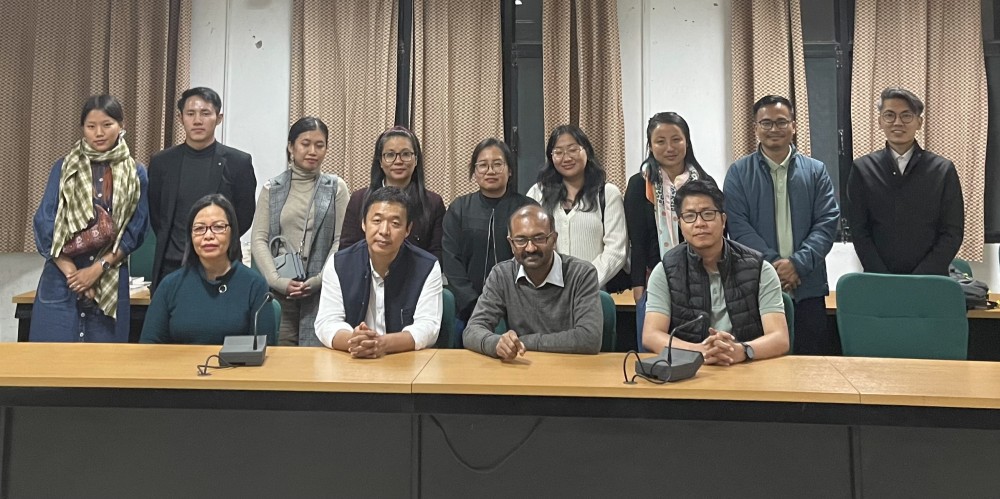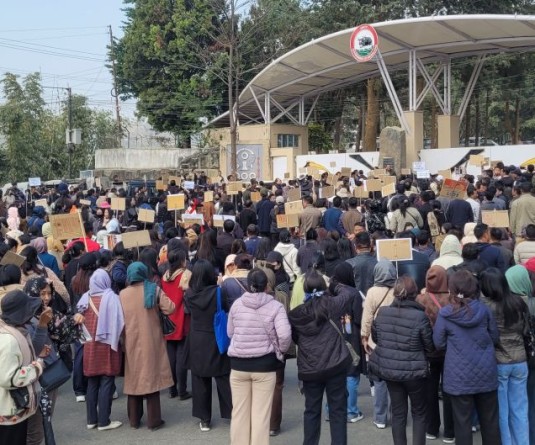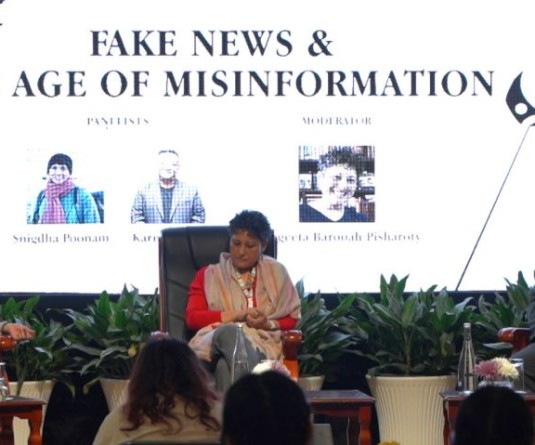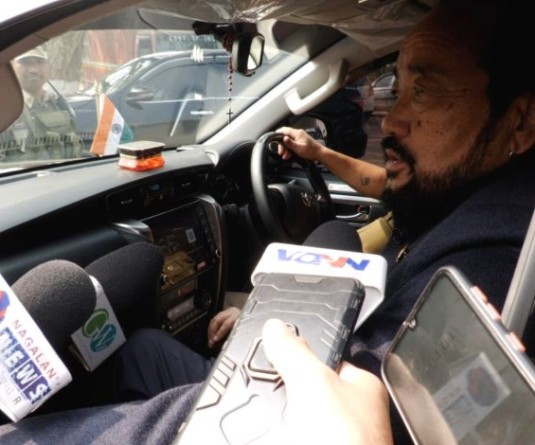Naga Scholars Association organised a book discussion on ‘Waiting For A Christmas Gift: Essays on Politics, Elections and Media in Nagaland’ on February 10.

Dimapur, February 15 (MExN): The Naga Scholars Association (NSA) organised a book discussion on ‘Waiting For A Christmas Gift: Essays on Politics, Elections and Media in Nagaland’ by Dr Vikas Kumar at the School of International Studies, Jawaharlal Nehru University on February 10.
NSA President, Dr Ngoru Nixon chaired the discussion while Dr AC Kharingpam, Assistant Professor, Department of English, Jamia Millia Islamia was the discussant, stated a press release issued by Haidamteu Zeme N, Ph.D Fellow, Department of Humanities & Social Sciences, Indian Institute of Technology, Delhi.
Dr Kharingpam made the participants aware of the two frameworks he had in mind while reading the book: first, he was wary of the author’s position as an “Indian” attempting to “territorialize” this space that is “Nagaland” and second, he was concerned if the author was writing from only his own perspective.
Dr Kharingpam felt that in certain instances, crucial events were fleetingly mentioned while an extensive commentary on them could have been taken into account considering the complex and layered socio-political scenario of the state. Broaching on the politics of number games, the contested debate on women, and the Reservation Bill against the backdrop of the incoming state elections, the discussant and participants engaged in a series of conversations.
He drew examples from Manipur. Viewing the conceptualisations of “big” and “small” within statistical data as relational and deeply politicized, he asked, “How do we rationalize this divide? When development is tied down to representation in politics, how do we look at the valley-hill divide?”
During the Q&A session, a participant responding to the book pondered if the author’s viewpoints/perceptions have undergone a shift since the commentary stretched to a timeline of ten years. Additionally asking, if the inclusion of fresh perspectives alongside already published commentary would perhaps have given a nuanced perspective and a more wholesome reading, the release stated.
The release stated that Dr Kumar spoke of the need to constantly engage with the masses. He stressed the necessity of asking nuanced questions, especially in an era where media houses sometimes “print everything under the sun” leading to more confusion rather than addressing pressing social, political, and moral issues.
He believed in the inclusivity of those in the margins and appreciated local platforms which are now consciously writing and telecasting themselves. Few cautionary measures such as not misspelling names of certain communities and villages should be of due importance, if not “how different will we be from the mainstream papers!” he noted.
In conclusion, he stated that he was aware of certain consequences his words might have had on the readers/people on ground. As a speaker/writer located as an outsider, he has the privilege to “leave”- something his interviewees perhaps might not have access to. Bunching together all these anxieties and all these stories, the author stated that between the work’s initial vision and final execution, hopefully, readers find the book’s place.
The talk ended with vote of thanks by Elvina S Amongla, General Secretary, NSA.






